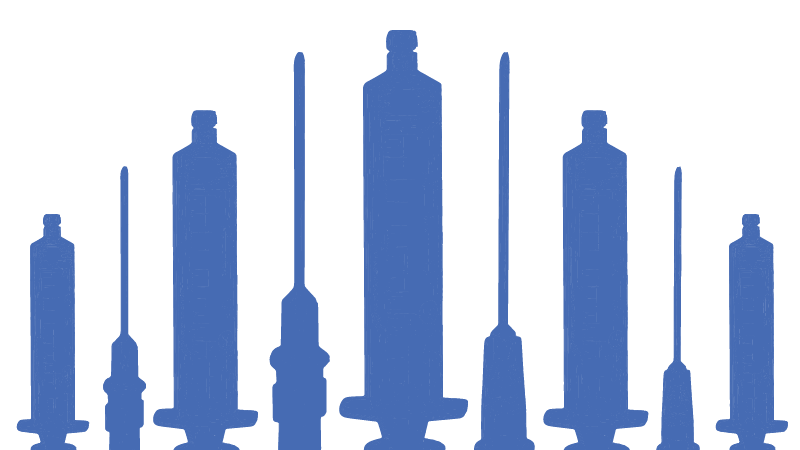Syringes for Pharmacy Compounding: Regulatory Background
 BlogCleanroom30.08.2022
BlogCleanroom30.08.2022
Although relatively simple devices, syringes have a fairly complex regulatory background, straddling both the medical device and pharmaceutical worlds.
Micronclean serve the pharmacy compounding sector across Europe, in which syringes are mostly used for compounding only (i.e. mixing and preparing pharmaceuticals) and are discarded in the pharmacy. However, some are filled with the final pharmaceutical preparation and are used to administer to the patient. This 'intended use' results in such syringes being classified as medical devices and the need to meet applicable regulatory requirements.
This means compliance with the Medical Device Regulation (EU) and the Medical Devices Regulation (UK) and the devices need to bear the either the CE mark of conformity (EU) or the new UKCA mark. Syringes intended for patient administration have a medical device classification of Class I (sterile/measuring), or Class IIa (if intended to be used in an automated syringe pump). For both classifications, the syringe manufacturer must have their quality management system (QMS) and technical documentation 'conformity assessed' by a medical device certification body (known as notified bodies in the EU and approved bodies in the UK ) before the CE or CA mark can be applied.
EN ISO 13485 is the QMS standard for medical device manufacturers and meets most of the QMS requirements of the regulations. Although the standard is not mandatory (all standards are optional) it is however viewed as essential for any serious medical device manufacturer.
In addition to having a suitable QMS, the syringe manufacturer has to fully consider a range of safety and performance issues including potential device hazards and risks, validation of sterility, biological safety, packaging, shelf life and labelling. Safety and performance must be continually monitored and assessed via ongoing clinical evaluation and post-market surveillance activities. The resulting technical documentation needs to be compiled in a clear and organised manner as it will be periodically assessed by a notified / approved body.
Compliance with international standards is also a key aspect of establishing the safety and performance of medical devices and some standards are either harmonised with regulatory requirements or otherwise represent 'state of the art' for the subject matter. Standards applicable to syringes include EN ISO 7886-1 (Sterile hypodermic syringes for single use) and EN ISO 80369-7 (concerning luer connections).
Although syringes, when empty, are classed as medical devices, when filled with the final pharmaceutical preparation intended for the patient, the syringe becomes a medicinal product. Where pharmaceuticals are mass produced in syringes, the syringe can be designed and qualified to be compatible with the specific pharmaceutical (this is generally known as the 'pre-filled syringe' marketplace). However, for pharmacy compounding, a wide range of pharmaceuticals in various doses are prepared in the syringes, often bespoke to an individual patient. Rather than the syringe manufacturer attempting to pre-qualify syringes for each possible use, which would be largely impractical, pharmacies carry out pharmaceutical stability studies themselves using in-house or NHS protocols.
Micronclean are the leading provider of syringe packs to the UK pharmacy compounding industry and use the BD Plastipak range of syringes. This syringe range was first introduced by BD in 1961 and has been the syringe of choice for pharmacy compounding for many years. Micronclean are registered to EN ISO 13485 and hold EU MDR and UKCA certificates (with leading notified / approved body BSi) for the manufacture of syringes and syringe caps in multipacks. Micronclean offer a full range of other complementary pharmacy compounding components as well as triple wrapping, custom packs and packing / sterilisation of customers' own products.
For more details, please contact:
Philip Borrington (Medical Device Technical Specialist)
